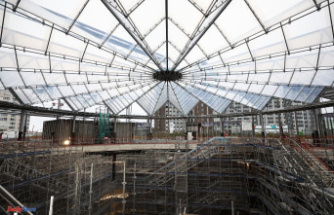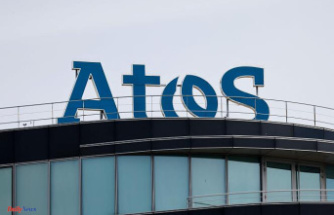India is investing a lot of time, money and resources in building its domestic market and driving the energy transition. The largest democracy in the world is becoming more and more relevant for Germany as a production location. The planned free trade agreement with the EU offers great opportunities for the global economy, says an expert.
Get out of dependency: The federal government is working hard to find new energy partners. Concentrating on a few large gas suppliers like Russia was pragmatic and lucrative, but just as dangerous. Germany's economy is just as dependent on the Chinese President Xi Jinping as it is on Russia's President Vladimir Putin: With a trade volume of 246 billion euros in 2021, China is Germany's most important trading partner for the sixth time. We import more products from no other country in the world than from China. German car manufacturers like VW, BMW and Daimler produce more cars in China than in Germany.
This dependency is the next big danger for the German economy. Like Putin, Xi Jinping is also prepared to start a war with his neighbors when in doubt. Should China attack Taiwan, Germany would have to participate in sanctions against China due to transatlantic loyalty, according to experts. Sanctions that would also hit the German economy hard. Economically, that would be an own goal.
In order to free itself from this dependency, Germany needs more trading partners and a larger selection of production sites. India could play a key role here. The President of the Frankfurt School of Finance
In fact, a lot is happening in the world's largest democracy: a real internal market is emerging in India. President Narendra Modi is investing billions in the infrastructure of the huge country with almost 1.4 billion inhabitants. According to the central government's road construction program, around 84,000 kilometers of country roads and expressways are to be completed by the end of 2025. In addition, the largest tax reform since India gained independence 75 years ago was introduced in 2017. This also includes the nationwide uniform sales tax, which is considered an important building block for an Indian domestic market.
Privatization is also progressing: the Indian government recently sold Air India to the Tata Group. Nils Stieglitz sees a significant commitment from Indian large corporations here: "Indian conglomerates such as Tata, Adani and Reliance firmly believe in India as an industrial location and are willing to invest more than 250 billion US dollars in the next five to eight years." All of these are signs of strong growth in an economic nation that is already the fifth largest economy in the world.
Stieglitz is therefore particularly excited about the planned free trade agreement, which is due to be finalized by the end of 2023. "Here lies a very great opportunity for the German, European and world economy, because we need a locomotive for free trade again," says the India expert. Talks on a free trade agreement with India paused for around nine years. Now - probably also due to the geopolitical changes - things should go quickly.
Asia expert Christian Wagner from the German Science and Politics Foundation agrees that India is becoming more and more relevant as a production location for German companies. In "Economy World
Despite all the euphoria, India is also in the midst of a real job crisis. Every second resident is younger than 28 - and in this age group the unemployment rate is almost 44 percent. At the beginning of the year, almost 12 million people applied for around 35,000 job advertisements at the state railway.
A problem solver could be the expansion of renewable energies. An industry that now plays an important role in India and in which many new jobs could be created. The country is investing billions in expanding solar power and is a leader in using hydropower as an energy source. Germany is already supporting India in expanding renewable energies. There is definitely still a lot of potential here, with a view to the future.
The Asia-Pacific Committee of German Business also dared to take this look a few weeks ago and once again raised the question of whether India will always remain a future market. A question to which there will be a partial answer next year: the planned free trade agreement could reorganize the economic world geostrategically - if it is actually implemented.












